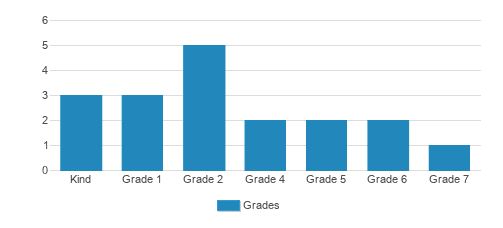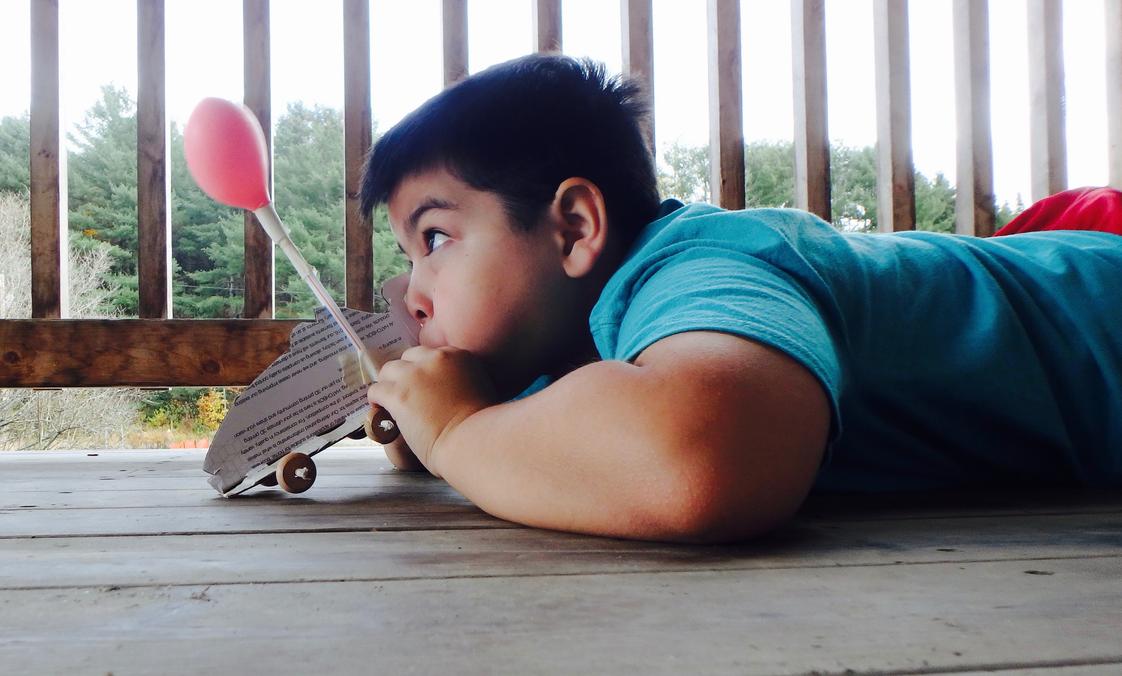It is the mission of Woodland Community School to nurture and respect children's love of learning by encouraging their natural curiosity and self-motivated exploration.
Through meaningful connections children develop a sense of self and others, an understanding of their place in community, and a deep appreciation for the natural world.
Quick Stats (2025)
- School Type: Alternative School
- Grades: Kindergarten-6
- Enrollment: 18 students
- Yearly Tuition: $9,500
- Application Deadline: Apr. 8 / rolling
- Source: Verified school update
School Overview
School Type
School Membership(s)School Assoc.
Religious Affiliation
Grades Offered
Grades Kindergarten-6
Year Founded
2004
Student Body
Total Students
18 students
Student Body Type
Co-ed
% Students of Color
11%
State avg.: 17%
Students by Grade

Academics and Faculty
Total Classroom Teachers
3 teachers
Student : Teacher Ratio
6:1
National avg.: 13:1
List of Courses Offered
Tuition and Acceptance Rate
Admission Deadline
Apr. 8 / rolling
Yearly Tuition Cost
Tuition Notes
Financial Aid available.
Admissions Director
Jenny Johnson
School Notes
- We believe all learning styles deserve respect. As Howard Gardner has shown the pedagogical world, there are many different ways to learn and know. He found eight intelligences: linguistic, logical/mathematical, musical, spatial, bodily-kinesthetic, interpersonal, intrapersonal, and naturalist. At Woodland we give time and space for all styles of learning. Children spend time in groups, alone, outside and inside, and as a result they are given time to explore all of their intelligences. All too often it seems as though the only valued intelligences are linguistic and logical/mathematical, but at Woodland we believe in the importance of connection to self, others, and the natural world. It is important to all of us that the interpersonal, intrapersonal, and naturalist be nurtured in each child. In a world where people are working more often in teams, where it`s important to know yourself and your own likes and dislikes, and where the earth needs advocates to protect her from harm, we want our children to grow up learning skills that are truly important.
- We believe children are naturally curious.If you stand back and watch a child, he will show you clearly his keen desire to learn: the one year-old who points to everything and asks, "Dat?"; the three year-old who asks over and over, "Why?"; the small child who puts her face right next to the ladybug and examines; or the older child who asks to be shown how to knit or why the formula for the area of a circle is r2. Children are incessantly curious, wanting to learn everything about the world in which they live. In fact, given the chance, adults are incessantly curious as well!
- We believe children love to learn. Instead of asking children to learn what we want them to learn when we want them to learn it, why not let them lead the way? Our Journeys of Discovery reflect this. The Journey of Discovery is simply a chosen theme or project that the students and teachers delve into together. They work on the Journey each morning at school by exploring questions they have about the topic, and through their work in the Journey, students develop an array of skills. During the Journey the teachers work alongside the students: initiating, guiding, observing, and asking questions themselves. There is not a predetermined outcome to the Journey, and thus the work between the students and teachers is truly collaborative.
- We believe children learn best through play. For the large part of the afternoon, children are given time to do what they desire. The kids call it "Free Choice," and there are two principle reasons why we have given the children this time. Maria Montessori describes "sensitive periods" as being the time when a child is focused on one thing, delving into it with body, mind, and spirit. As mothers we had seen our own children have these sensitive periods, and at Woodland we want to honor these times and allow children the space and time to be immersed fully into whatever they are drawn. Giving children this time to make their own choices takes a lot of trust. We believe children are capable of making sound decisions.We have seen it with our own children and now with the children at Woodland. Given the choice, children will often make sound decisions about themselves and others. Children deserve this chance.
- We believe children have great ideas.Why not engage children as they offer their own ideas and show their own interests? This kind of education kindles the spark that will encourage them to be lifelong learners.
- We believe that a mixed-age classroom fosters cooperation, reduced competition, and compassion. How often in life are we asked to work with others only of our own age? Once: while we are in school. The reality of life is that people live and work with folks older and younger than themselves. This is enriching and edifying. We learn from people of all ages. We believe children need time to be children.In this age of information, people move quickly and with high expectations. Children are encouraged to read and write in kindergarten, whereas 50 years ago, it was normal to learn to read by age seven. Children are expected to do homework at younger ages and to sit still in classes with less time at recess. This work is justified as preparation for the next step, for our children to be prepared for the homework to come, for the time at a desk in the future.
- We believe childhood is not just a preparation for adulthood, but an essential experience in and of itself. Childhood should be valued as an important time in each person`s life; it should be full of joys and feelings of success. It should be lived in the moment, not only for the future.
- Finally, we believe in the importance of a nurturing space.The farmhouse is warm and inviting because we want our students to feel safe and comfortable. There are large windows overlooking the farm and warm colors on the walls. The kids have access to books, puzzles, paints, computers, dress-up clothes, and many other kinds of games, toys and manipulatives. Outside we have trees to climb, a brook to wade in, an organic farm to explore, a forest to create in, and green grass to play games on. Each year the students make the space their own, both inside and out.
Source: Verified school update
Frequently Asked Questions
How much does Woodland Community School cost?
Woodland Community School's tuition is approximately $9,500 for private students.
When is the application deadline for Woodland Community School?
The application deadline for Woodland Community School is Apr. 8 / rolling (applications are due on Apr. 8 but additional applications are reviewed year-round as space permits ).
School Reviews
Endorse Woodland Community School. Endorsements should be a few sentences in length. Please include any comments on:
- Quality of academic programs, teachers, and facilities
- Availability of music, art, sports and other extracurricular activities
- Academic or athletic awards
Recent Articles

A Parent's Guide To Understanding High School Teaching Methods
This comprehensive guide helps parents navigate the various teaching methods used in today's high school classrooms. By understanding these approaches, you'll be better equipped to support your teen's learning journey, communicate effectively with teachers, and create a complementary learning environment at home.

February 08, 2025
Social Emotional Learning: Education's Hidden SymphonyA musician's perspective on Social Emotional Learning reveals how this educational framework orchestrates success through five essential emotional competencies.

January 24, 2025
A Roadmap For Starting A Private SchoolUse this roadmap as a set of talking points with your trusted mentors and professionals to start the private school of your dreams. You're not alone. Over the years, hundreds of folks like you have had the same dream. From Quintilian to Maria Montessori to Lucy Madeira Wing, visionary educators have established schools to teach according to their beliefs and methodologies.






















